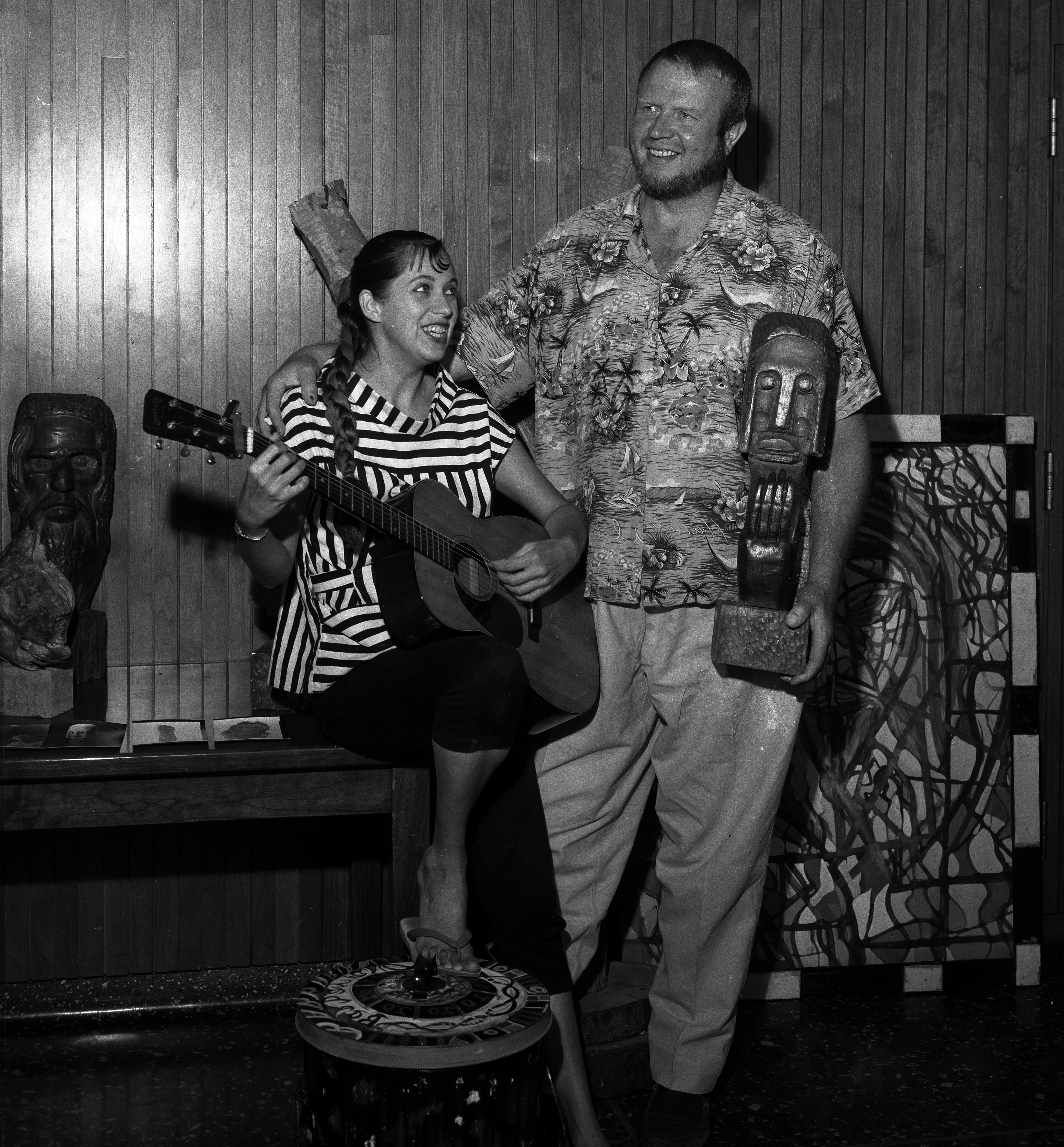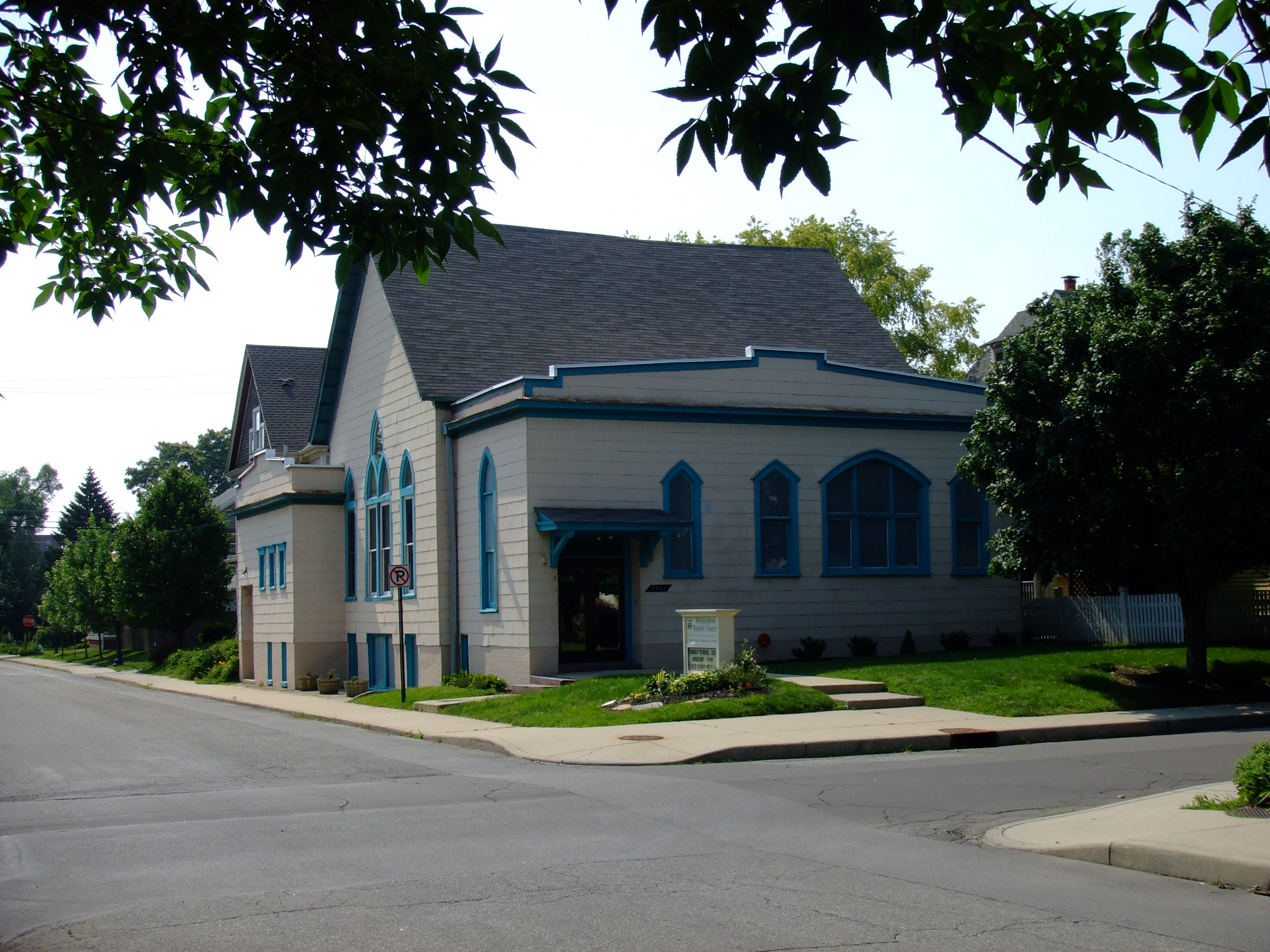|
I-Hotel
The International Hotel, often referred to locally as the I-Hotel, was a low-income single-room-occupancy residential hotel in San Francisco, California's Manilatown. It was home to many Asian Americans, specifically a large Filipino American population. Around 1954, the I-Hotel also famously housed in its basement Enrico Banduccci's original "hungry i" nightclub. During the late 60s, real estate corporations proposed plans to demolish the hotel, which would necessitate displacing all of the I-Hotel's elderly tenants. In response, housing activists, students, community members, and tenants united to protest and resist eviction. All the tenants were evicted on August 4, 1977 and the hotel was demolished in 1981. After the site was purchased by the International Hotel Senior Housing Inc., it was rebuilt and opened in 2005. It now shares spaces with St. Mary's School and Manilatown Center. History Residential hotel The I-Hotel, originally established as a luxury location for tr ... [...More Info...] [...Related Items...] OR: [Wikipedia] [Google] [Baidu] |
Kearny Street Workshop
Kearny Street Workshop (KSW) in San Francisco, California, is the oldest multidisciplinary arts nonprofit addressing Asian Pacific American issues. The organization's mission is to produce and present art that enriches and empowers Asian Pacific American communities. Notable participants include author and Asian American studies scholar Russell Leong, playwright and author Jessica Hagedorn, author Janice Mirikitani, poet and historian Al Robles, and actor and filmmaker Lane Nishikawa. History Origins Kearny Street Workshop was founded as an artists' collective in 1972 in the International Hotel (I-Hotel) on San Francisco's Kearny Street. The founders Jim Dong, Lora Joh Foo, and Mike Chin and other early leaders were involved in the Asian American movement, a Civil Rights Movement-inspired period of organizational and community building in the 1970s. The National Endowment for the Arts provided some initial funding through the Neighborhood Arts Program (NAP), an initiative of ... [...More Info...] [...Related Items...] OR: [Wikipedia] [Google] [Baidu] |
Political Alliances Of Peoples Temple
The Peoples Temple, the new religious movement which came to be known for the mass killings at Jonestown, was headquartered in San Francisco, California, United States from the early to mid-1970s until the Temple's move to Guyana in 1977. During this period, the Temple and its founder, Reverend Jim Jones, rose to national prominence thanks to Jones' interest in social and political causes, and wielded a significant amount of influence in San Francisco's city government. History The Peoples Temple began in 1955 as a racially integrated Christian church founded by Reverend Jim Jones. While the Temple originated in suburban Indiana, the congregation moved to Redwood Valley, California in the late 1960s after Jones predicted a nuclear apocalypse that would facilitate the beginning of a socialist Eden on earth. By the mid-1970s, the organization possessed over a dozen locations in California, including in San Francisco and Los Angeles.Wessinger, Catherine. ''How the Millennium Comes ... [...More Info...] [...Related Items...] OR: [Wikipedia] [Google] [Baidu] |
Little Manila
A Little Manila ( fil, Munting Maynila or ), also known as a Manilatown ( fil, Bayang Maynila) or Filipinotown ( fil, Bayang Pilipino), is a community with a large Filipino immigrant and descendant population. Little Manilas are enclaves of Overseas Filipinos consisting of people of Filipino origin living outside of the Philippines. This term applies to Filipinos who are both abroad indefinitely as citizens or permanent residents of a different country, and to those Filipino citizens abroad for a limited, definite period, such as on a work contract or as students. It can also include seamen and others who work outside the Philippines, but are neither permanent nor temporary residents of another country. Characteristics Filipino markets According to Rick Bonus, author of ''Locating Filipino Americans: Ethnicity and the Cultural Politics of Space'', "...Filipinos only deal with Filipinos." The author meant that in a Filipino society is very "tightly bound" and tend to only purcha ... [...More Info...] [...Related Items...] OR: [Wikipedia] [Google] [Baidu] |
Manilatown
A Little Manila ( fil, Munting Maynila or ), also known as a Manilatown ( fil, Bayang Maynila) or Filipinotown ( fil, Bayang Pilipino), is a community with a large Filipinos, Filipino immigrant and descendant population. Little Manilas are enclaves of Overseas Filipinos consisting of people of Filipinos, Filipino origin living outside of the Philippines. This term applies to Filipinos who are both abroad indefinitely as citizens or permanent residents of a different country, and to those Filipino citizens abroad for a limited, definite period, such as on a work contract or as students. It can also include Sailor, seamen and others who work outside the Philippines, but are neither permanent nor temporary residents of another country. Characteristics Filipino markets According to Rick Bonus, author of ''Locating Filipino Americans: Ethnicity and the Cultural Politics of Space'', "...Filipinos only deal with Filipinos." The author meant that in a Filipino society is very "tightly b ... [...More Info...] [...Related Items...] OR: [Wikipedia] [Google] [Baidu] |
Richard Hongisto
Richard Duane Hongisto (December 16, 1936, Bovey, Minnesota – November 4, 2004, San Francisco, California) was a businessman, politician, sheriff, and police chief of San Francisco, California, and Cleveland, Ohio. Early life and education Of Finnish descent, Hongisto was the son of Gladys Longrie and Raymond Hongisto. In 1942, Dick moved to San Francisco with his parents and brother Don. Dick grew up in the Sunset District, where he graduated from George Washington High School. He later attended San Francisco City College. While completing a bachelor's degree at San Francisco State University, Hongisto became an officer of the San Francisco Police Department (SFPD). Career Early career As a police officer, Hongisto earned a reputation for activism, fighting discrimination within the police force and against police brutality. He was a co-founder of Officers for Justice, an organization of officers who were primarily racial minorities or gay. Hongisto's activis ... [...More Info...] [...Related Items...] OR: [Wikipedia] [Google] [Baidu] |
Manilatown, San Francisco
Manilatown was a Filipino American neighborhood in San Francisco (i.e., a Little Manila), which thrived from the 1920s to late 1970s. The district encompassed a three block radius around Kearny and Jackson Streets, next to Chinatown. The neighborhood was known for the International Hotel ("I Hotel"), a single room occupancy (SRO) hotel where many of the residents lived. Manilatown was also home to many businesses that catered to the Filipino American community, such as Manila Cafe, New Luneta Cafe, Bataan Lunch, Casa Playa, Sampagita Restaurant, Blanco's Bar, Lucky M. Pool Hall, and Tino's Barber Shop. At its height, over 1000 residents lived in Manilatown, and it contained a total of 30,000 transient laborers. From the late 1960s-70s, the neighborhood was transformed by city initiatives that aimed to gentrify the area. By 1977, the neighborhood had been largely destroyed, and it became part of Chinatown. History The early generation of Manilatown residents were known as the '' ... [...More Info...] [...Related Items...] OR: [Wikipedia] [Google] [Baidu] |
Al Robles
__NOTOC__ Alfred A. Robles (February 16, 1930 - May 2, 2009) was a Filipino American poet and community activist in San Francisco. Born in 1930, he was the second eldest in a family of ten brothers and sisters and grew up in the Fillmore district of San Francisco. A community character, he was instrumental in the political fight against the city to stop the demolition of the International Hotel on Kearny Street. He was also a prominent member of the San Francisco-based Asian American writers' collective Kearny Street Workshop. Al Robles combined heritage with experience. His poetry and community work honored Filipino elders (Manongs) and also inspired and encouraged the young students, activists, writers and artists to connect to their Filipino heritage. Verses about traditional Filipino foods, his experiences in Hawaii, New Mexico, and community personalities in San Francisco resulted in countless poems, and two published works: "Looking for ''Ifugao Mountain: Paghahanap Sa Bundo ... [...More Info...] [...Related Items...] OR: [Wikipedia] [Google] [Baidu] |
Hungry I
The hungry i was a nightclub in San Francisco, California, originally located in the North Beach neighborhood. It played a major role in the history of stand-up comedy in the United States. It was launched by Eric "Big Daddy" Nord, who sold it to Enrico Banducci in 1951. The club moved to Ghirardelli Square in 1967 and operated mostly as a rock music venue until it closed in 1970. The name of the nightclub was reused later as a strip club in San Francisco, from the late 1960s until 2019. Name "In 1950, I was acting and designing sets for an amateur theatrical group. One of the men said he wanted to start a small club where actors could go after rehearsals and have coffee, pastry, a beer, et cetera, and sit around and talk--unwind from the work. He asked if I would design the interior, and also think of a name. I came up with hungry i--which referred to all the various hungers of the first person singular. The other man changed his name and personality as the club developed, ... [...More Info...] [...Related Items...] OR: [Wikipedia] [Google] [Baidu] |
Peoples Temple
The Peoples Temple of the Disciples of Christ, originally Peoples Temple Full Gospel Church and commonly shortened to Peoples Temple, was an American new religious organization which existed between 1954 and 1978. Founded in Indianapolis, Indiana by Reverend Jim Jones, the Peoples Temple spread a message that combined elements of Christianity with communist and socialist ideology, with an emphasis on racial equality. After Jones moved the group to California in the 1960s and established several locations throughout the state, including its headquarters in San Francisco, the Temple forged ties with many left-wing political figures and claimed to have 20,000 members (though 3,000–5,000 is more likely). The Temple is best known for the events of November 18, 1978, in Guyana, when 909 people died in a mass suicide and mass murder at its remote settlement, named "Jonestown", as well as the murders of U.S. Congressman Leo Ryan and members of his visiting delegation at the nearby P ... [...More Info...] [...Related Items...] OR: [Wikipedia] [Google] [Baidu] |
San Francisco Housing Authority
The San Francisco Housing Authority is a local public housing authority for the City and County of San Francisco that was established in 1938 after the Housing Act of 1937 was enacted by the U.S. Federal Government. The agency is responsible for the management of public housing and Section 8 vouchers for primarily low-income housing. While the agency is based in and has jurisdiction over San Francisco, it is operated independent of the city's government and is chartered by the state government of California. History The agency was established in 1938, a year after the federal Housing Act of 1937, in order to build and run public housing developments in San Francisco. Due to lobbying from local residents, the agency primarily built its public housing buildings in low-income neighborhoods. For example, proposed public housing in the city's Richmond District was protested, with residents claiming they wished to keep their neighborhood a "first-class residential district, rather tha ... [...More Info...] [...Related Items...] OR: [Wikipedia] [Google] [Baidu] |
San Francisco, California
San Francisco (; Spanish for " Saint Francis"), officially the City and County of San Francisco, is the commercial, financial, and cultural center of Northern California. The city proper is the fourth most populous in California and 17th most populous in the United States, with 815,201 residents as of 2021. It covers a land area of , at the end of the San Francisco Peninsula, making it the second most densely populated large U.S. city after New York City, and the fifth most densely populated U.S. county, behind only four of the five New York City boroughs. Among the 91 U.S. cities proper with over 250,000 residents, San Francisco was ranked first by per capita income (at $160,749) and sixth by aggregate income as of 2021. Colloquial nicknames for San Francisco include ''SF'', ''San Fran'', ''The '', ''Frisco'', and ''Baghdad by the Bay''. San Francisco and the surrounding San Francisco Bay Area are a global center of economic activity and the arts and sciences, spurred ... [...More Info...] [...Related Items...] OR: [Wikipedia] [Google] [Baidu] |
The Untold Story Of Rev
''The'' () is a grammatical article in English, denoting persons or things that are already or about to be mentioned, under discussion, implied or otherwise presumed familiar to listeners, readers, or speakers. It is the definite article in English. ''The'' is the most frequently used word in the English language; studies and analyses of texts have found it to account for seven percent of all printed English-language words. It is derived from gendered articles in Old English which combined in Middle English and now has a single form used with nouns of any gender. The word can be used with both singular and plural nouns, and with a noun that starts with any letter. This is different from many other languages, which have different forms of the definite article for different genders or numbers. Pronunciation In most dialects, "the" is pronounced as (with the voiced dental fricative followed by a schwa) when followed by a consonant sound, and as (homophone of the archaic pr ... [...More Info...] [...Related Items...] OR: [Wikipedia] [Google] [Baidu] |








.png)